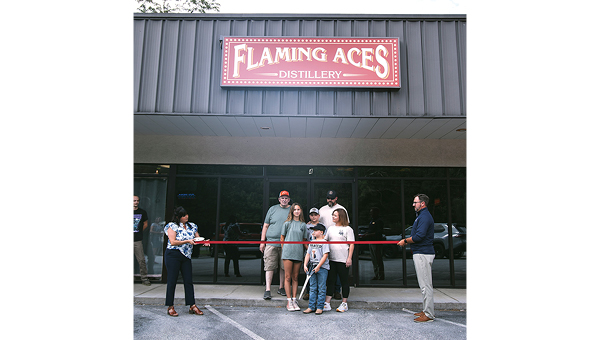Be prepared to stay healthy and safe this winter
Published 8:17 am Wednesday, November 13, 2019
Most of us woke up to winter Tuesday morning even through winter does not officially arrive for another month. We were warned ahead of time that snow was in the air and the flakes would be falling early Tuesday.
Although winter comes as no surprise, many are not ready for its arrival. If you are prepared for the hazards of winter, you will be more likely to stay safe and healthy when temperatures start to fall.
Many people prefer to remain indoors during winter, but staying inside is no guarantee of safety. Take these steps to keep your home safe and warm during the winter months.
Winterize your home.
– Install weather stripping, insulation, and storm windows.
– Insulate water lines that run along exterior walls.
– Clean out gutters and repair roof leaks.
– Check your heating systems.
Have your heating system serviced professionally to make sure that it is clean, working properly, and ventilated to the outside.
– Inspect and clean fireplaces and chimneys.
– Install a smoke detector. Test batteries monthly and replace them twice a year.
– Have a safe alternate heating source and alternate fuels available.
– Prevent carbon monoxide (CO) emergencies.
– Install a CO detector to alert you of the presence of the deadly, odorless, colorless gas. Check batteries when you change your clocks in the fall and spring.
– Learn symptoms of CO poisoning: headache, dizziness, weakness, upset stomach, vomiting, chest pain, and confusion.
– Cars driving on snowy road.
Get your car ready for cold weather use before winter arrives.
– Service the radiator and maintain antifreeze level; check tire tread or, if necessary, replace tires with all-weather or snow tires.
– Keep gas tank full to avoid ice in the tank and fuel lines.
– Use a wintertime formula in your windshield washer.
Prepare a winter emergency kit to keep in your car in case you become stranded. The kit should include:
– cell phone, portable charger, and extra batteries;
– blankets;
– food and water;
– booster cables, flares, tire pump, and a bag of sand or cat litter (for traction);
– compass and maps;
– flashlight, battery-powered radio, and extra batteries;
– first-aid kit; and
– plastic bags (for sanitation).
Be prepared for weather-related emergencies, including power outages.
– Stock food that needs no cooking or refrigeration and water stored in clean containers.
– Ensure that your cell phone is fully charged.
– When planning travel, be aware of current and forecast weather conditions.
– Keep an up-to-date emergency kit, including:
– Battery-operated devices, such as a flashlight, a National Oceanic and Atmospheric Administration (NOAA) Weather Radio, and lamps;
– extra batteries;
– first-aid kit and extra medicine;
– baby items; and
– cat litter or sand for icy walkways.
Protect your family from carbon monoxide.
– Keep grills, camp stoves, and generators out of the house, basement and garage.
– Locate generators at least 20 feet from the house.
– Leave your home immediately if the CO detector sounds, and call 911.
Above all, be ready to check on family and neighbors who are especially at risk from cold weather hazards: young children, older adults, and the chronically ill. If you have pets, bring them inside. If you cannot bring them inside, provide adequate, warm shelter and unfrozen water to drink.
No one can stop the onset of winter. However, if you follow these suggestions, you will be ready for it when it comes.





